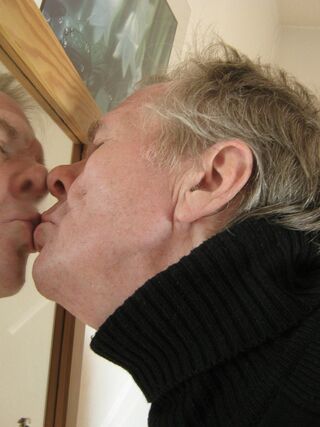Personality
How to Make Changes in Your Personality
Five steps can help you discover who you are and how to make changes.
Posted December 8, 2020
Personality is made up of the long-lasting ways we think, behave, and show our emotions. Many people write or ask me, “how do I make changes in who I am? Is it even possible?” Yes, it is possible.

None of us controls the way parents raise us that shapes our personalities. But we can undo some of the ways they shaped or emotionally conditioned us as children that do not serve us well as adults. It is important that we make such changes so we can become the best person we can be. I’ll provide five steps that may be helpful in this process.
Inward Study of Yourself––Start Observing
To begin you need to look inward at who you are. Start by discovering how to self-observe. Each day watch every person you interact with. Scrutinize how they act, think and show emotions. Most importantly, observe your reactions to each person. Ask yourself these questions: How do you feel? What do you think? How do you behave with each? You may want to grab a notebook and record your observations as you do this work.
Ask Questions
Through each person’s involvement with you, ask questions of each one. Why did you cry, laugh, get angry? Why did you think that? Why did you act that way? Asking questions prevents assuming what the other person thinks and feels. Such assumptions cause relationship strife.

Automatic Roles
Do you react to people on auto-pilot, in a knee-jerk way? Homer B. Martin, MD and I write about automatic emotional reactions and roles that take place in relationships in our book, Living on Automatic. We found that automatic reactions are the cause of most relationship conflicts. It will help if you can identify those people you react to in an automatic manner.
Make a list of what you think about yourself. Identify if you fall into a patterned way of relating with others by looking at your interactions with close friends and family. Can you also identify their automatic, stereotyped roles in relating to you?
Record all the details such as: Who said what? What happened? How did you feel? What emotions did the other person show? Ask yourself who calls the shots––you or the other person? Who goes along with whom to avoid disagreements? Who helps whom? Is either person dismissive of the other? Do either of you manipulate or demand?
Evaluate Circumstances
In most relationships, we overlook present circumstances and react the same way we always have, regardless of what is going on. The way around this is to assess what is reasonable right now. Ask yourself: What is the most reasonable action to take? Way to think about this? Way to show my emotions? Everything must be evaluated in these 3 areas: at this present time, in this situation, and what the benefits are for me and the other person.

Use Thinking Skills
The action that overrides emotionally conditioned responses to others is thinking. To think you need to slow down your reactions, as if you are putting them into slow motion. When you slow down your interactions enough, you can think about what to do. When you feel an automatic response coming on with another person, try saying, “Let me think about this and let you know my thoughts later on.”
Try an Unnatural Behavior
To avoid doing what you automatically have always done in your relationships, you might try a new approach. This involves doing something unnatural for you. If you are accustomed to demanding, manipulating or conniving to get what you want, try just asking with a straight-forward question without emotional overlay.
If you are accustomed to giving in and pacifying others in some relationships, try speaking up. You might say, “Thanks for your thoughts. Now let me tell you mine.”

Standard of Reasonableness
Looking inward at yourself is not easy. You have been accustomed to reacting to others in a programmed way you learned as a child. Undoing this takes time and dedicated mental effort. You will be disrupting the old automatic, stereotyped responses to others and replacing them with specific responses based on the particulars of the moment. At this time and in this situation what do I and the other person require? This is the new question you will ask with every encounter with another person.
You will help yourself adopt a standard of reasonableness rather than an automatic emotional response that leads to conflict and unhappiness. By doing this process you’ll learn to approach people––including yourself––as they are in reality at a given moment. You won’t allow others to be inconsiderate or unreasonable with you and you won’t allow yourself to be that way with others. You will no longer be swayed by emotional persuasion. You will avoid the mindless reflex behaviors learned in childhood. You will be happier and you will improve your relationships.


